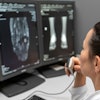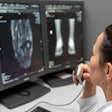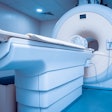Dear AuntMinnie Member,
The first few weeks of January are usually pretty sleepy in the world of radiology. But things got riled up this past week with the publication of an opinion article in the Journal of the American Medical Association suggesting that the role of radiologists could eventually evolve into that of gatekeepers preventing the overuse of medical imaging.
The thesis was that eventually artificial intelligence (AI) would take over much of the routine work that radiologists perform, such as interpreting chest radiographs or breast screening exams. This would free them up to take on other tasks, and the authors (nonradiologists who have written previously about curbing imaging overuse) helpfully suggested that one of these could be working with general physicians to cut back on unnecessary patient referrals for imaging studies.
It's a provocative idea -- and a suggestion to which radiologists didn't exactly warm. In a lively thread on our Forums, many pointed out that while well-intentioned, the idea runs smack into the hard economic reality of fee-for-service medicine in the U.S., in which all physicians are incentivized to perform more tests. Still, the article is worth a read.
Doubts about radiopharma plan
Another controversy has been brewing in the world of nuclear medicine and molecular imaging, where the U.S. government has proposed a new pathway that would allow some healthcare practitioners to administer radionuclide therapies with far less training than what's currently required. Stay tuned for more on this developing story.
CT expeditors
Finally, visit our CT Community to learn how a hospital in New York City boosted the efficiency of CT scans in its emergency department by assigning an expeditor, a dedicated staff member who facilitated the acquisition of CT scans by communicating with emergency providers.
Enjoy the weekend!



















